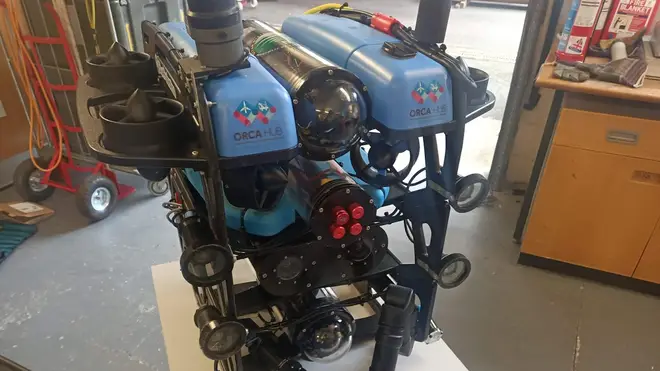
Ian Payne 4am - 7am
23 April 2021, 12:44

The National Robotarium is based at Heriot-Watt University in Edinburgh.
A leading robotics research centre at a Scottish university has been awarded funding to develop technology for underwater bomb disposal and dismantling nuclear material.
The National Robotarium, based at Heriot-Watt University in Edinburgh, will develop advanced tools allowing robots to replace humans in hazardous surroundings.
It will collaborate with Sheffield-based Cyberselves and the Cumbria-headquartered Resolve Robotics in developing communication systems to improve human command over robots operating in extreme environments.
A key element of the project will see the development of more advanced “haptic” technology, giving the human pilot a heightened experience of the underwater depths through touch, motion, vibration and temperature feedback.
The team is sharing a pot of £800,000 with 11 other projects in a programme managed by the UK Government’s Defence and Security Accelerator (DASA).
The organisation focuses on innovation and is part of the Ministry of Defence.
Professor Yvan Petillot, from the National Robotarium, said: “As a world-leading facility that promotes removing humans from hazardous work environments, this collaboration will draw upon the world-class talent of the staff at Heriot-Watt University in marine robotics and computer vision.
“We will accelerate research from laboratory to market, paving the way for the UK to take a leadership role in telexistence technologies.
“Our academic team will integrate new solutions for underwater telepresence and manipulation on small to medium remotely-operated underwater vehicles for remote intervention.”
Emily Tithecott, DASA associate delivery manager, said: “This competition gives us a real buzz, we are seeing more Government departments teaming together to fund innovations and this ensures many different sectors benefit from the adapted technologies.
“The funded projects will develop ideas in the latest remote operating, including: kinematic mapping, virtual reality, haptics, robotics, and telepresence.”